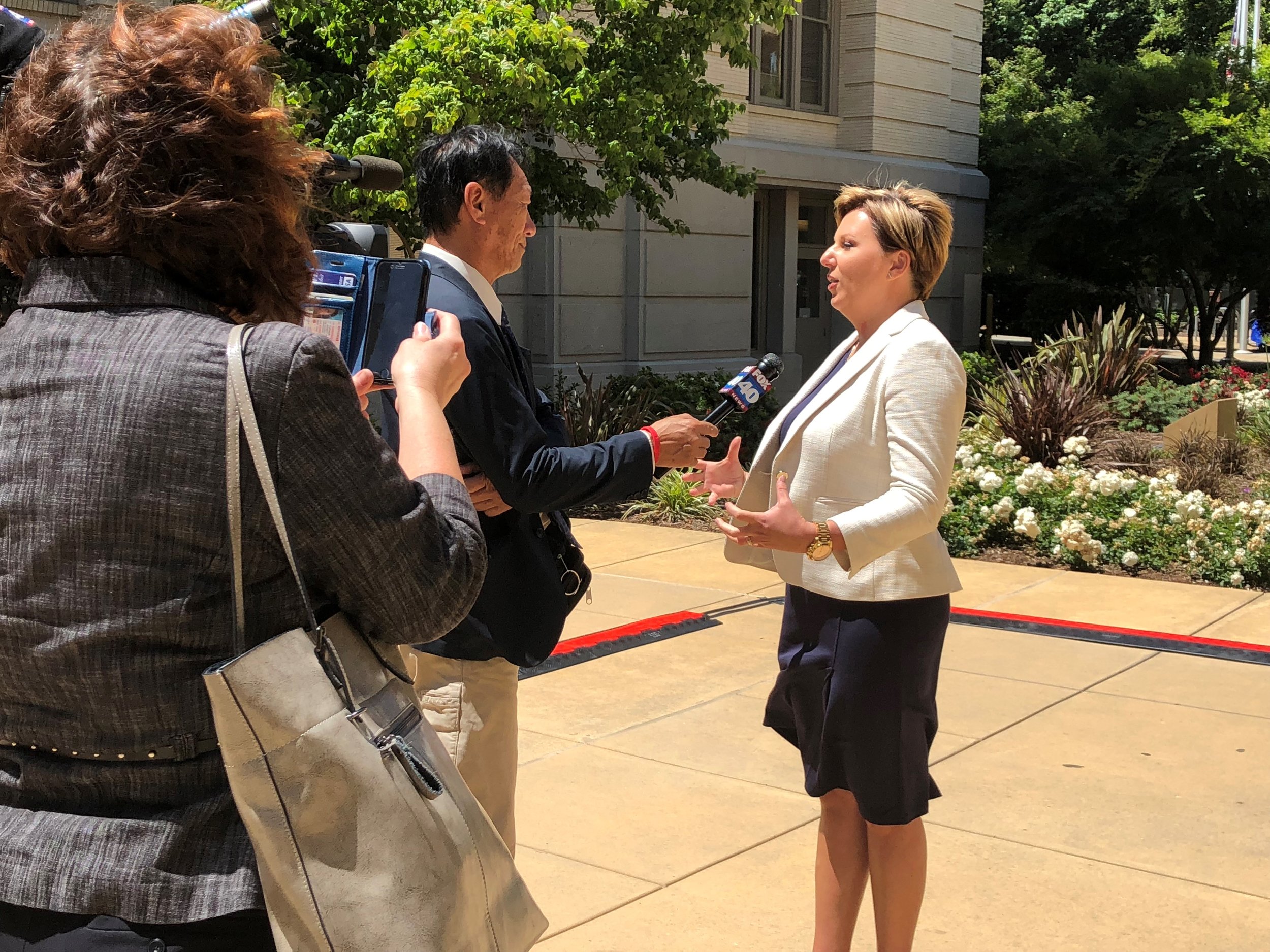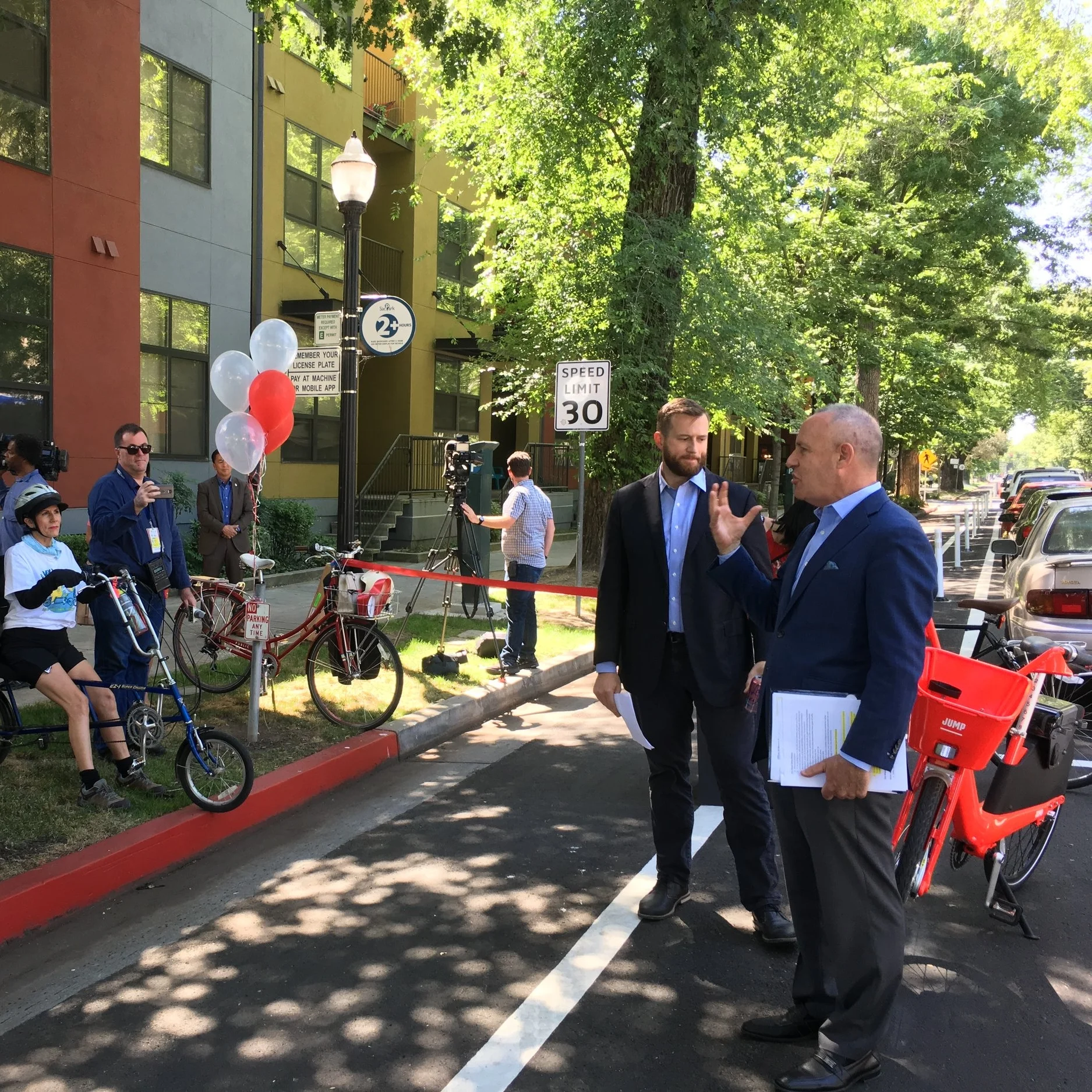Sutter Health invests $2.3 Million to keep Triage Center open and add more homeless shelters in Sacramento
Sacramento, CA — Mayor Darrell Steinberg announced Monday that investments from Sutter Health Valley Area and a private donor will allow the city’s Triage Center in North Sacramento to remain open through the end of August. The shelter, run by Volunteers of America, had been winding down operations in anticipation of closing May 31.
“We have momentum, and it’s working....We’re getting some of the most difficult and intractable people off the streets and off the riverbank.”
Sutter Health has committed $1 million toward funding the Triage Center for the next three months. The family of Helene and David S. Taylor has also made a generous donation.
In addition, Sutter Health is investing another $1.3 million to support the City as it creates longer-term emergency triage shelters to replace the Triage Center when it closes. City and Sutter Health staff members have been exploring strategies employed by other cities, including San Diego and San Francisco, which use large portable structures that can be erected quickly and house hundreds of people.

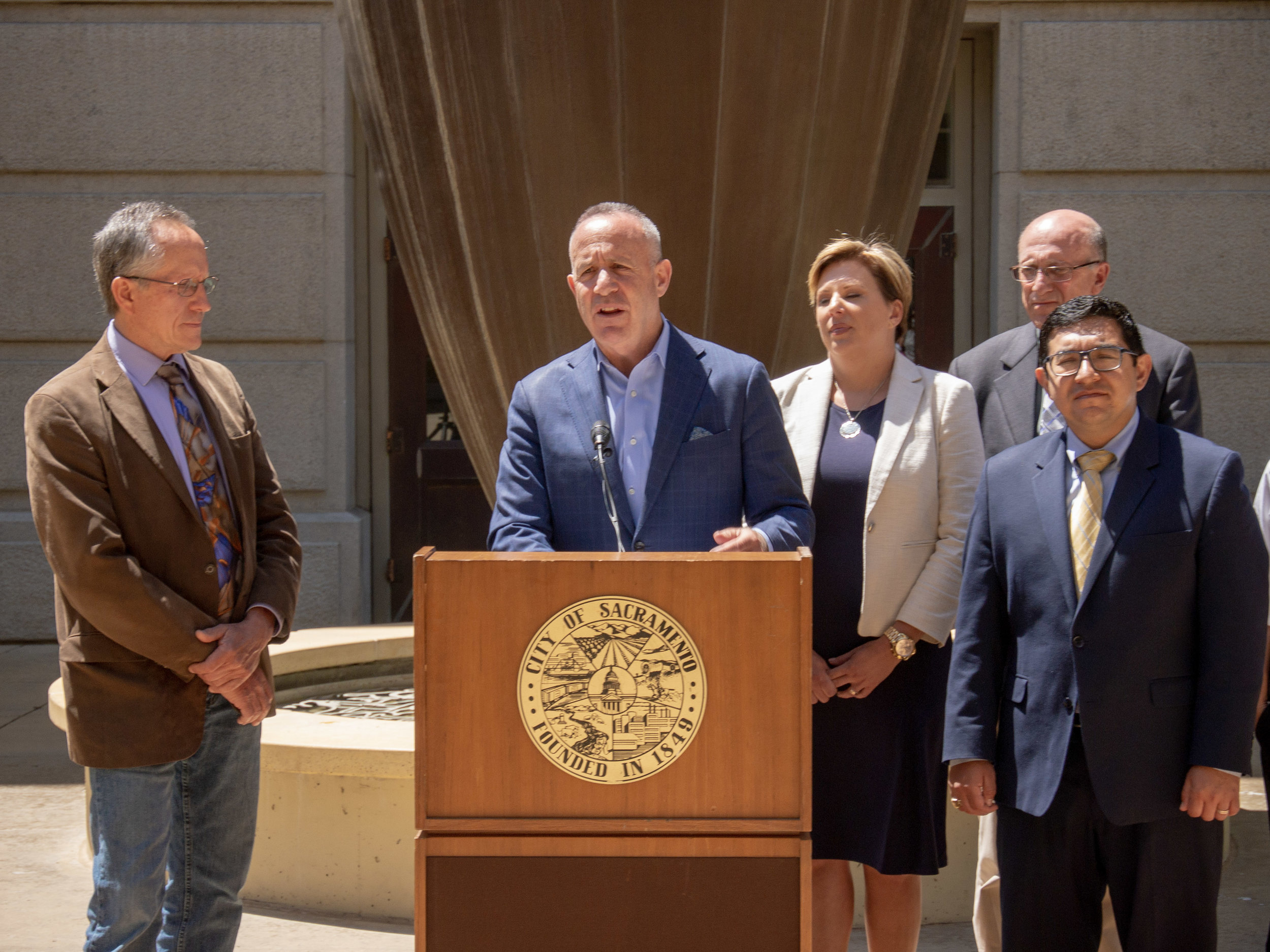


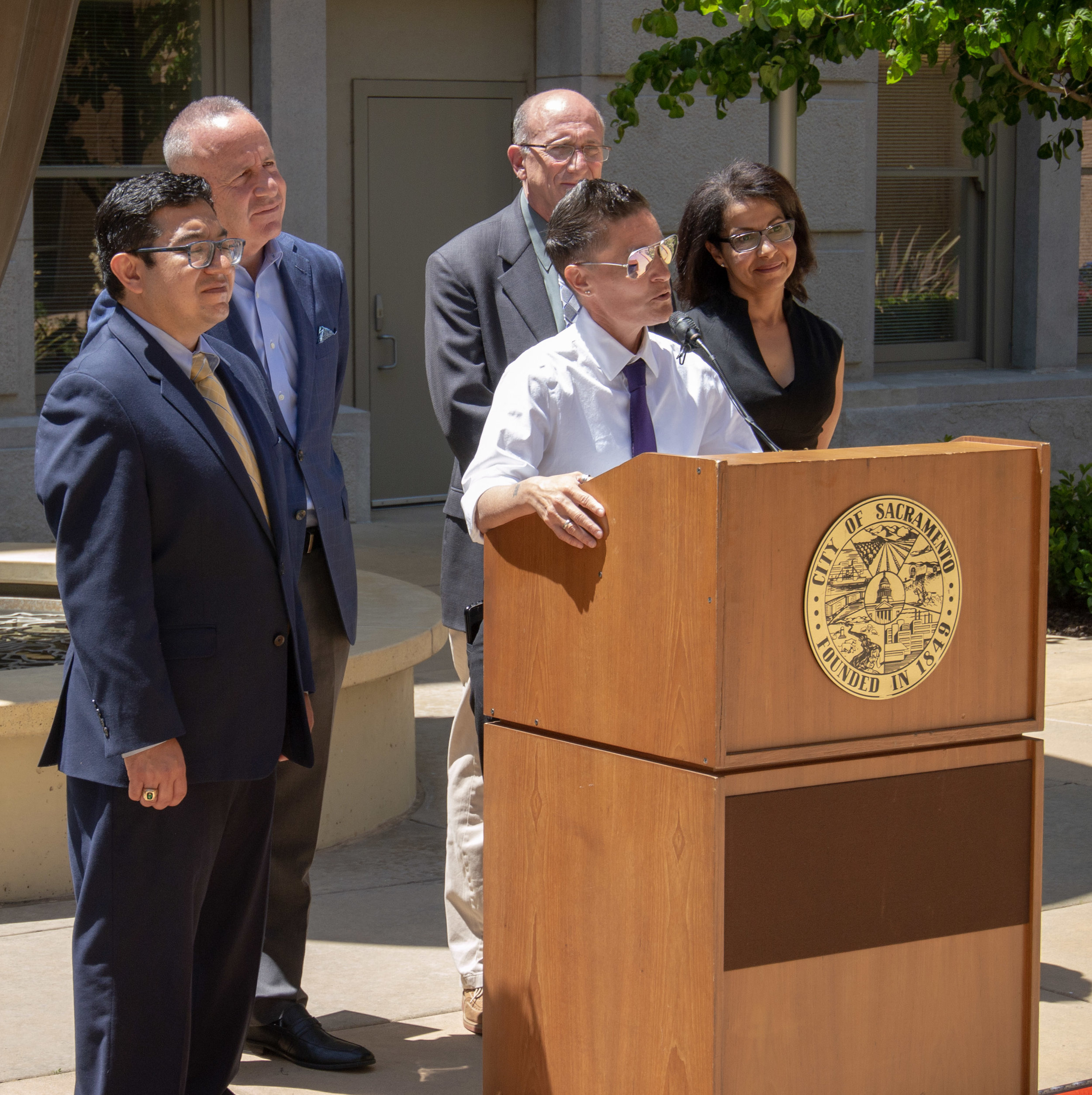
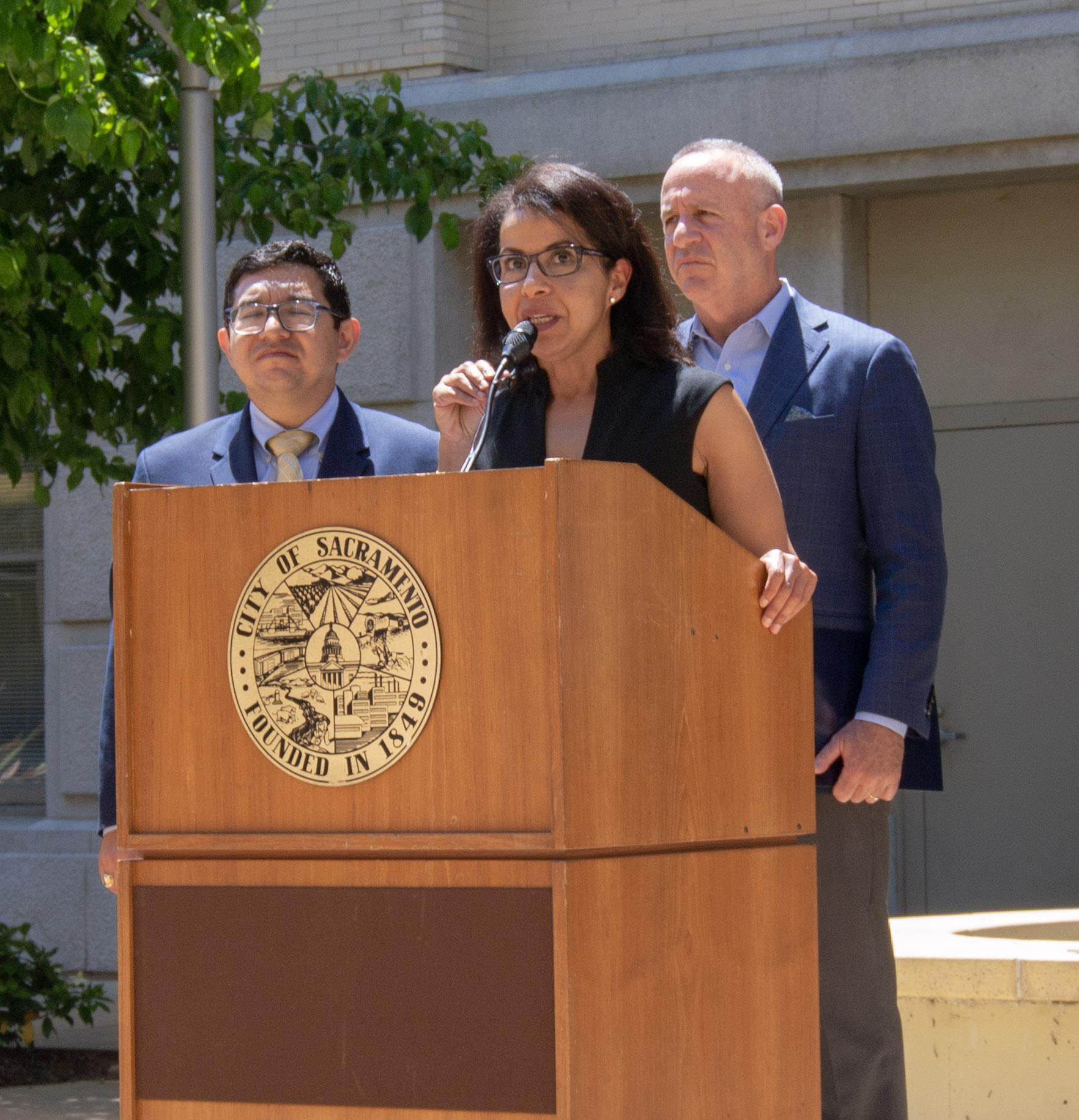
The mayor’s goal is to increase Sacramento’s shelter capacity to 600 beds from the 200-bed limit in the current Triage Center. Mayor Steinberg is committed to moving 2,000 people from the streets to shelter over the next three years.
Since its opening in December, the Triage Center has served 293 clients and placed 79 into permanent or longer-term housing. More than half of the guests have been over 50. Eighty-eight percent have been disabled, while 56 percent suffered from mental illness. About half – 49 percent – reported a substance abuse problem.
The Mayor praised Volunteers of America staff for their incredible work running the shelter, which reduced barriers for homeless patrons by allowing couples, pets and possessions. The shelter offers wrap-around services designed to stabilize homeless guests and help them find jobs and housing.
The Mayor also extended the City’s gratitude to Sacramento Covered, which has been enrolling eligible guests at the shelter into the City’s Pathways program (Whole Person Care) for enhanced care coordination to improve their physical and mental health.
“Sutter Health is working with leaders in the communities we serve to support programs that effectively address issues of homelessness, and we are proud to make this investment in Sacramento’s plan to reach functional zero — a time when we have enough shelter to house all of those who want to move off the streets.”



